14 Best Dublin Travel Tips
Having the opportunity to take a trip to Dublin is a unique experience. Enjoy every second of your stay by following the essential tips I share with you below.
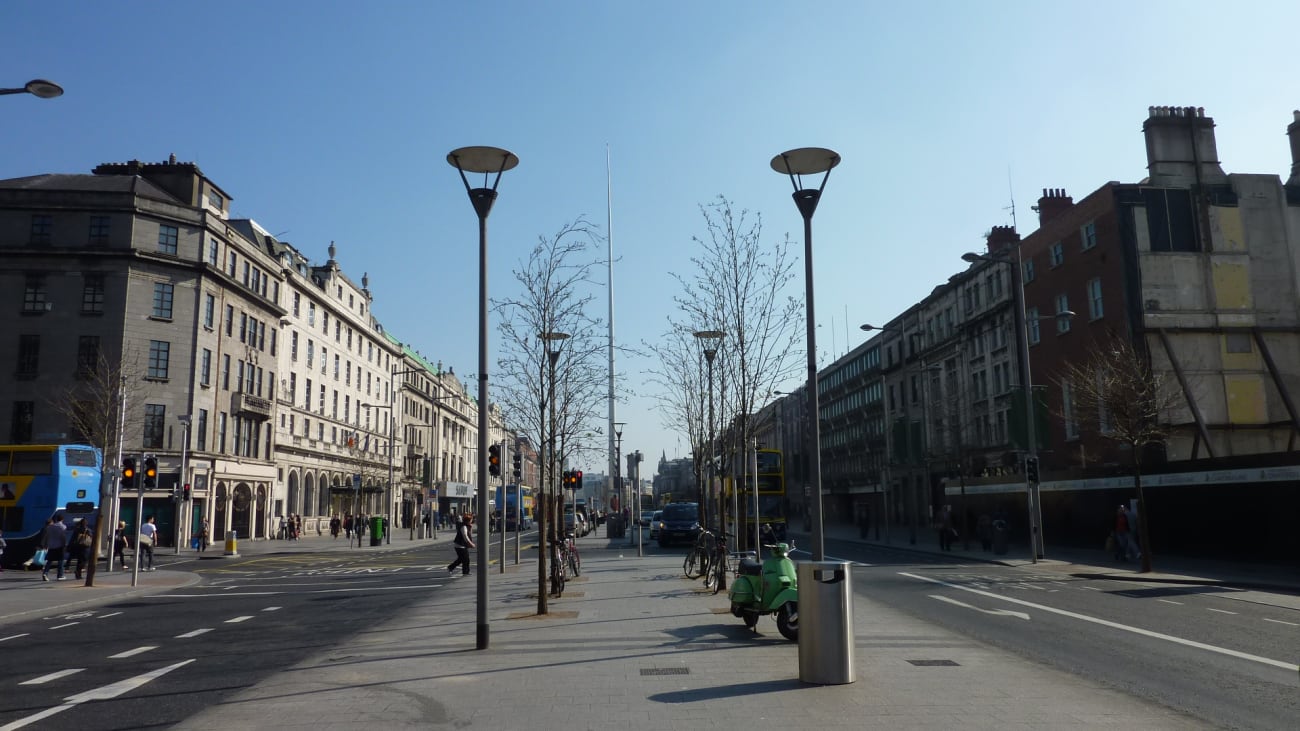
Streets of Dublin, Ireland | ©Sean MacEntee
Planning a trip to see the wonders that Dublin has to offer? I'm happy for you! This destination, like any other city in the world, has its peculiarities that you should know before travelling in order to avoid unpleasant surprises and reduce unforeseen events.
You will find manyattractions to enjoy in Dublin and in this list I will share with you everything you need to know to enjoy a perfect holiday.
1. The weather in Dublin can be unpredictable
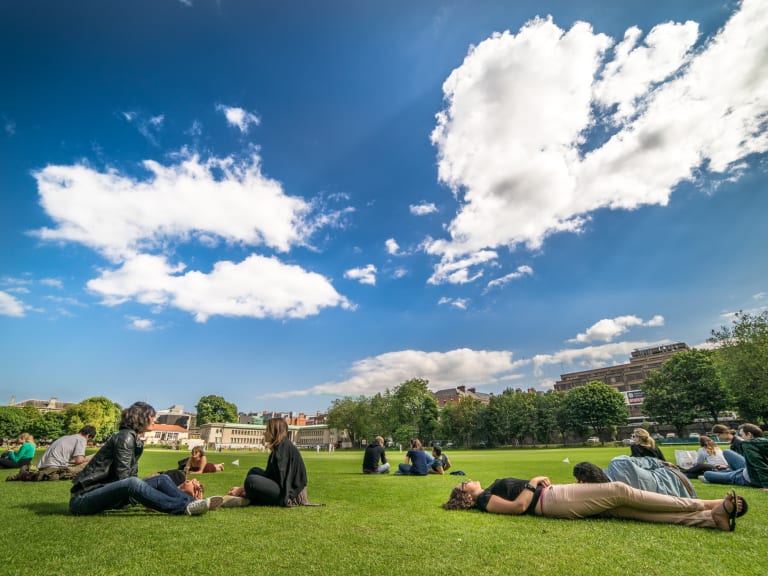
By now you're probably aware that Ireland is a country famous for its wet and extremely unpredictable weather; you can wake up one summer morning on a sunny day and see the sun fade away before noon to give way to wind and rain.
Locals claim that there are days when it is possible to experience all four seasons in one day.
My advice? Don't let this overwhelm you and integrate this eventuality as part of the adventure of getting to know Dublin by booking a guided tour of Dublin, for example, but of course go prepared for all weather conditions by bringing whatever you need to stay comfortable and dry: mackintoshes, umbrellas, rain boots, a light coat or winter clothing depending on when you travel.
2. Find out the best time to travel to Dublin
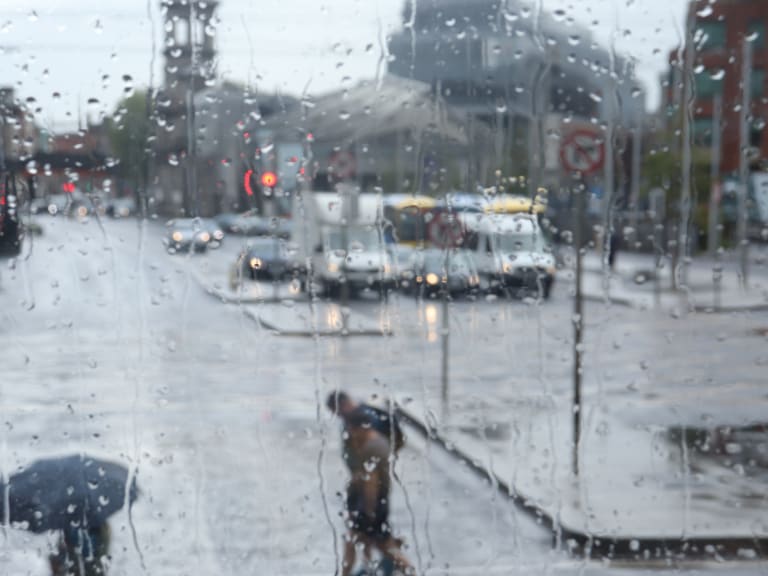
When it comes to Ireland in general, but especially Dublin city, tourism is highly seasonal. Find out about the low seasons, the high seasons and choose according to your travel objectives.
- High season: Summerin Dublin, especially the months of July and August, is the peak tourist season. In these months visiting Ireland can be a little more expensive and accommodation options fill up very quickly. Book as far in advance as possible.
- Mid-season: April, May, June, September and October are the off-peak season with good weather, ideal for exploring the city in depth.
- Low season: The low season is linked to the winter months in Dublin. In addition to the cold weather, some rural attractions on the outskirts of Dublin may be closed or operate limited hours due to the short days.
3. Take the tour bus to save time and money.
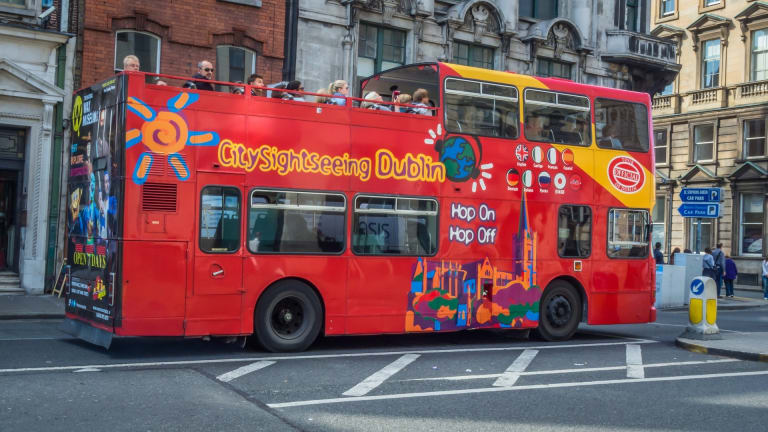
As you will notice when organising your Dublin itinerary, most of the attractions in the city are within easy reach. For example, from Trinity College you can easily get to various points of interest such as Temple Bar, the Museum of Archaeology or the iconic Grafton Street.
However, other equally important attractions, such as the Guinness Storehouse or Kilmainham Gaol, are a little further away. You can take public transport, but tour buses in Dublin are the most effective way to get around the city between the major attractions. The best part? You can buy a multi-day pass.
4. About tipping and how to pay in Dublin
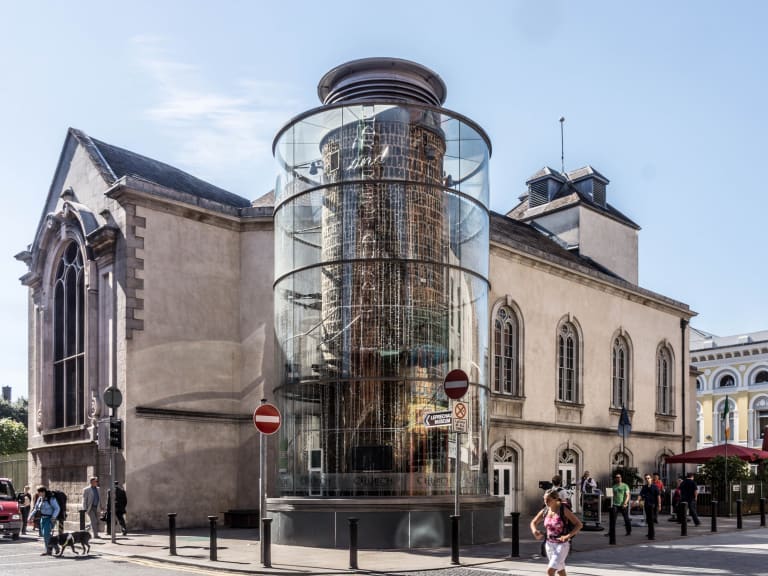
In Dublin, and Ireland in general, the tipping culture is not as ingrained as in other destinations and although service providers do not depend on tipping for a living, it is welcome. Take note of these tips on tipping in Dublin and apply them depending on the establishment you are visiting or the activity you are doing.
- In pubs, bars and restaurants: A tipping range between 10% and 15% is totally acceptable.
- Tour guides on paid tours: A range between 10% and 15%.
- Free tours: Minimum around €10 per person.
- Taxis: Tipping is not required or expected in taxis, but you can tip if you want to.
5. Purchase a Dublin Pass

The Dublin Pass is a wonderful resource that I highly recommend to all first time visitors to Dublin and especially to those planning a short stay in the city. You can purchase the Dublin all-inclusive Pass for one day and get free access to the city' s most iconic attractions. You can also use the Hop on and Off bus as many times as you like throughout the day.
Before you pay, check which attractions are included and confirm that the ones that catch your eye are included. The best way to purchase the Dublin Pass is to buy it online before your trip.
6. Taste the local food and visit the Guinness Brewery.
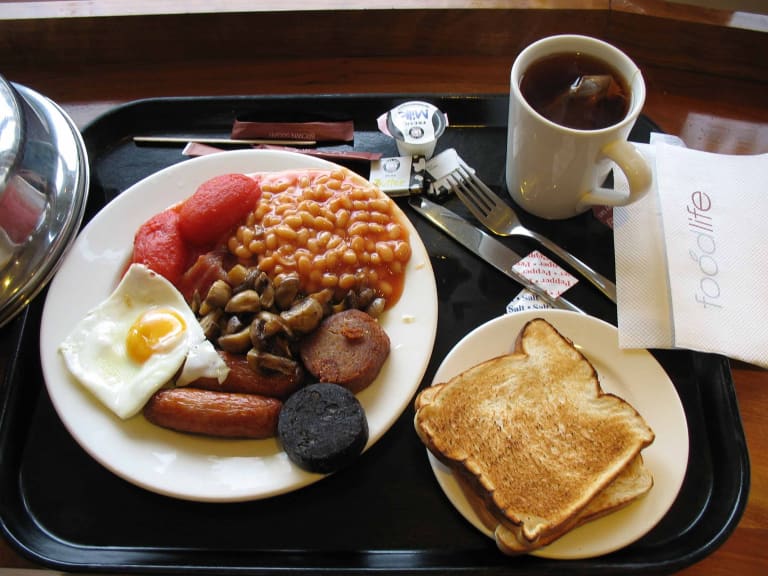
If you're visiting Dublin you can't miss out on the Irish food- from Irish stew, boxty pancakes, colcannon and fish and chips, it's worth trying a bit of everything. As for drinks, Guinness beer - you can learn about its origins by booking tickets to visit the Guinness Storehouse - andIrish coffee are a must on any visit to the city.
The best place to eat Irish food is in the traditional Irish pubs. These places offer good quality food and are very welcoming to tourists, so make sure you visit the city's best pubs during your stay.
7. Don't just stick to the capital

Dublin is the country's most popular tourist city for a reason: from the architecture to the castles to the rich history and pub culture, the Irish capital is a city to fall in love with.
However, if you ask an Irish person for advice, they'll tell you to make the most of your trip and explore the many other unique destinations the country has to offer. The best part? There are all sorts of organised tours departing from Dublin every day, allowing you to experience Ireland without the hassle and planning.
While there are certainly plenty of dream destinations, here are just a few ideas:
- Explore the mighty Cliffs of Moher, Kilmacduagh Abbey and Galway
- See the mountains of Wicklow, Glendalough and Kilkenny
- See the famous Giant's Causeway and Belfast
8. Learn your way around Dublin
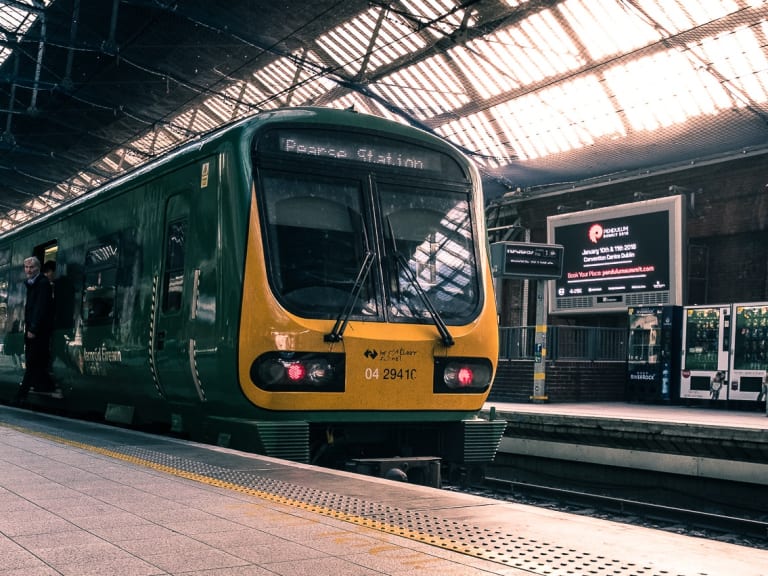
When getting around Dublin and the surrounding area it is important to consider the transport options available. All are valid but choose the one that best suits your needs.
Getting around Dublin by public bus
One of the most widespread and widely used services in the city, the public bus service is quite good, punctual and efficient. In addition, it reaches virtually every corner of the country.
Getting around Dublin by train
Trains are very fast and pleasant, but they don't reach all destinations. If the places you want to visit can be reached by train (or at least part of the way), don't hesitate for a second. Trains should be booked in advance, especially at peak times.
Getting around Dublin by car
Considering the public transport alternatives and the many excursions available, I don't really consider it necessary to rent a car in Dublin but if you choose to do so anyway, remember that Ireland drives on the left-hand side.
9. Save money with a Heritage Pass.
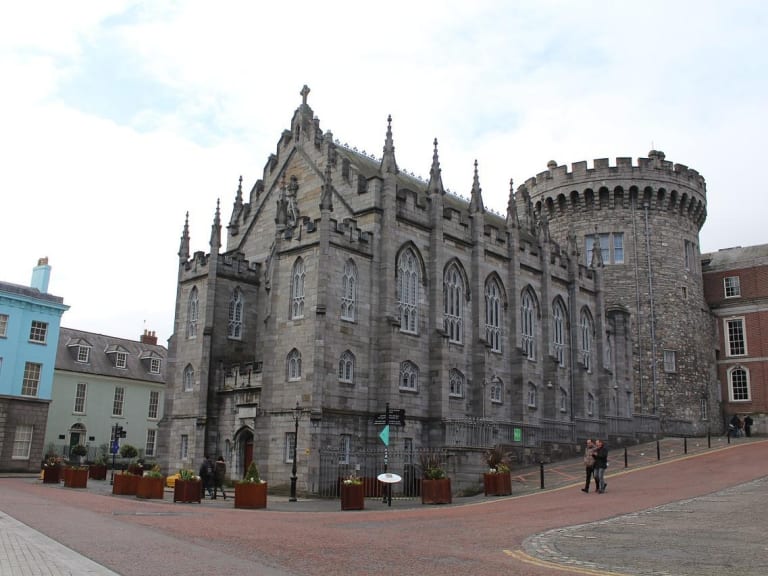
Interested in architecture and history? Consider buying the Heritage Pass when you first arrive in Dublin. It's a special pass designed to see most of the country's cultural and tourist highlights, so unlike the Dublin Pass, it's not just valid in Dublin.
Included in the special pass are a large number of attractions such as the beautiful Dublin Castles, various national parks, memorial gardens and many monuments in and around the capital. All this for a price of around €28. When you add up the individual price of visiting the attractions you're likely to end up saving.
10. Discover the city with a sightseeing tour
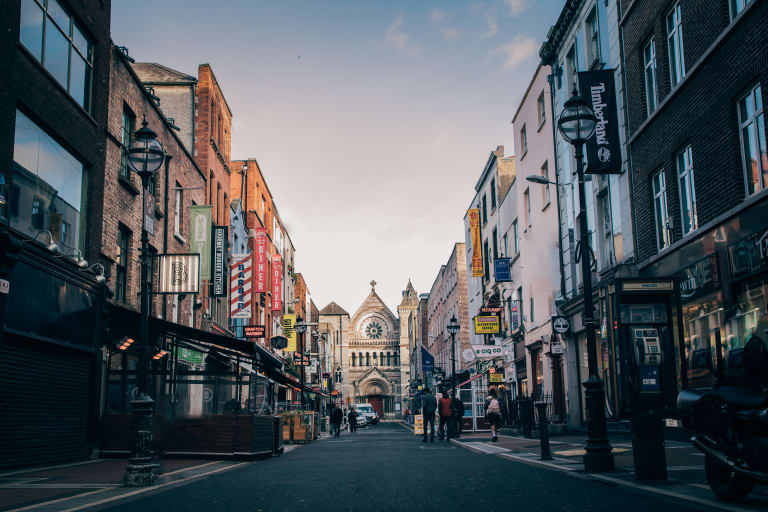
Just arrived in Dublin, one of the best ways to get acquainted with the city and get a quick glimpse of the most interesting places is, without a doubt, a sightseeing tour of the city.
You will find many interesting alternatives, so I invite you to explore the available options and book the one that best suits your interests. Historical tours of Dublin; food tours; walking tours; cycling tours of the city; ghost and mystery tours; and many more. You'll have plenty of options!
11. Free internet connection in Dublin

If you are walking around the city and need an internet connection, there are places in Dublin where you can get free wifi such as the city's pubs and all Starbucks cafes.
Additionally, Dublin City Council has launched an initiative of free internet hotspots in selected locations within the city. In addition, numerous local businesses and establishments offer this service free of charge.
You can save the website showingfree Wifi hot spots in Dublin before your trip and be prepared for any emergencies.
12. In Ireland you will need a power adapter
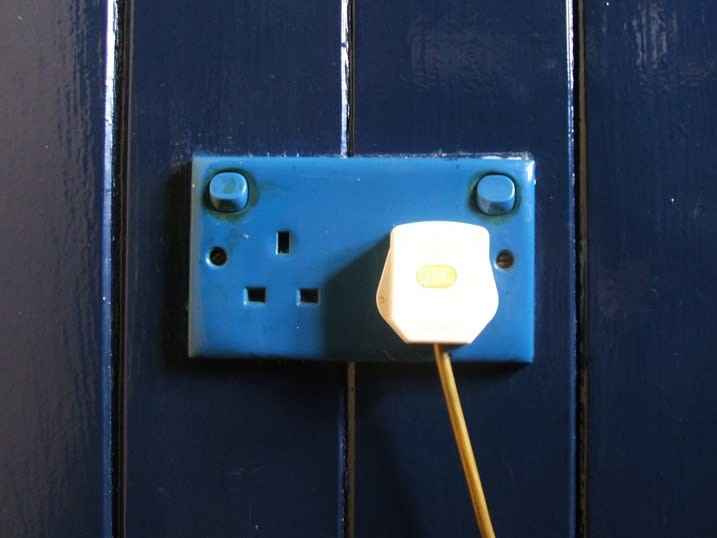
When packing your suitcase for your trip to Ireland, bear in mind one very important fact: Irish plugs are three-phase, so in order to use your equipment you will need to buy an adaptor.
The best plan is always to get the adapter you need before your trip, but if for some reason you forgot it, you can buy it in the city itself. It's best to head to the famous O'Connell Street shopping street in Dublin's Old Town to get your hands on the necessary equipment.
13. Language is important
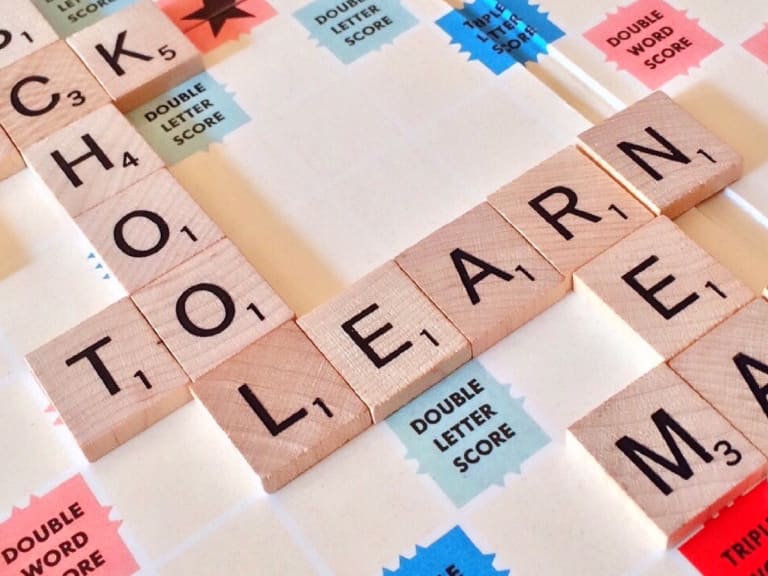
Remember that Ireland is on an island where the official constitutional languages are English and Gaelic, so the streets and signs are always in both languages.
All the inhabitants speak English, so if you can communicate effectively in English you shouldn't have any problems. In tourist areas, you'll also find staff who can communicate in Spanish or other popular languages.
Even if you have an excellent command of English, don't be alarmed if you find it a little difficult to understand the locals at first, especially in the regions beyond Dublin. The truth is that the Irish use a lot of slang, which, coupled with a thick accent, can make communication difficult at times.
14. Be aware of the city's business hours
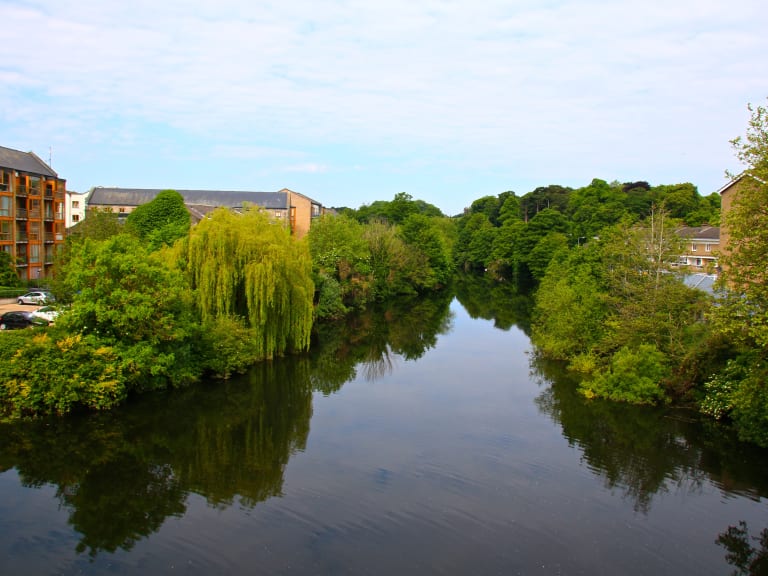
This tip is especially important when out and about in towns and cities beyond the capital: in Ireland, Sunday is considered a day of rest, and while many shops and attractions are open, others may not be, or may work limited hours.
This rule also applies to national holidays. My advice? When planning your itinerary, check carefully which attractions or shops you will visit on Sunday and check the opening hours for each of them.
